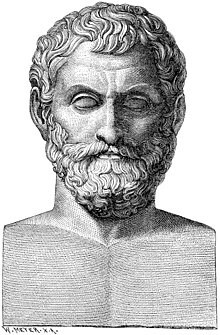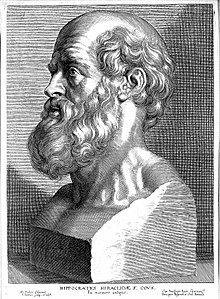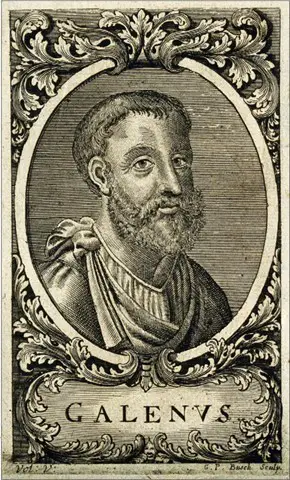Greece, the birthplace of Western civilisation, is renowned for its ancient philosophers who paved the way for modern thought. From the Pre-Socratics to the Late Antique period, Greek philosophy has left an indelible mark on the world. Their ideas on ethics, politics, and metaphysics continue to influence modern thinkers, making it essential to recognise the most famous Greek philosophers of all time.
Picture yourself walking through the ancient agora in Athens, surrounded by the ruins of the past, and you can almost hear the whispers of Socrates, Plato, and Aristotle discussing the complexities of life. Or perhaps you’re strolling through the lush gardens of Epicurus, pondering his teachings on the pursuit of pleasure and the meaning of happiness.
In this article, we will take you back in time to discover the 21 most famous Greek philosophers who shaped the course of philosophy and Western thought. From the mystical musings of Plotinus to the skepticism of Sextus Empiricus, each philosopher has made a unique contribution to philosophical discourse that continues to this day.
We explored four eras of Ancient Greek philosophy: The Pre-Socratic era, the Classical era, the Hellenistic era, and the Late Antique era. The 7 most famous Ancient Greek philosophers of all time to emerge are:
- Heraclitus
- Thales
- Socrates
- Plato
- Aristotle
- Epicurus
- Augustine
Join us on our journey through the ages as we explore the ideas and legacies of the most famous Greek philosophers of all time.
Pre-Socratic Philosophers
The first recorded and significant philosophical contributions from Ancient Greece are in the 6th and 5th centuries BCE. The Pre-Socratic philosophers we discuss in this section are:
- Thales
- Anaximander
- Anaximenes
- Heraclitus
- Parmenides
- Empedocles, and
- Zeno of Elea
This was a time that was characterised primarily by the exploration of matter and the nature of the universe. Thinkers considered what matter consists of, the concept of motion and change, and the bounds of the universe. The ideas of these great thinkers set off a chain of questioning and exploration that can be traced all the way to modern philosophy.
The earlier we go in time, the more out there many of the ideas become, especially when we consider the earliest metaphysical queries. While we discuss many of these ideas today, we also recommend an article by Big Think that hilariously outlines the brilliantly flawed explanations of nature set forth by the Ancient Greeks.
Overview of the Pre-Socratic period
Thales of Miletus

The founder of the Ionian school of philosophy was Thales of Miletus. Ionian philosophers all agree that there is something about all matter that remains constant – though they do not agree on what that commonality is.
Thales held that everything is comprised of a single material – water. Thales was the first to attribute natural events to natural causes, rather than the work of gods. His work had great impact on Aristotle, who we discuss in the next section.
Anaximander
Anaximander, a student of Thales, is also an Ionian philosopher. He is best known for his notion that the universe is boundless, endless, and infinite.
Anaximenes of Miletus
Another Ionian philosopher, Anaximenes of Miletus believed the universe is comprised of air.
Heraclitus of Ephesus
The last of our Ionians is Heraclitus who held that everything is comprised of fire. Because of this, nothing ever stands still, everything is in a constant state of movement. While this idea may sound ridiculous at first, it makes more sense when we imagine the constant movement of and heat generated by atoms.
Empedocles
Empedocles clearly saw merit in each of the forgoing ideas and held that there are 4 elements in the universe: Earth, air, fire, and water.
Parmenides of Elea
Unlike many of the other philosophers of his time, Parmenides argued that the universe is notin a constant state of change but is in itself constant. Parmedies saw motion as an illusion, and the universe as unchanging.
Zeno of Elea
Zeno of Elea (not to be confused with Zeno of Citium, discussed in a later section), is best known for his paradoxes.
Classical Period Philosophers
The most well-known time in Ancient Greek philosophy was the Classical period, with the most notable philosophers of this time being:
- Socrates
- Plato, and
- Aristotle.
These 3 philosophers – particularly Plato, had an incredible impact on the philosophy that occurred after their time.
Overview of the Classical period
Socrates
Socrates focused his philosophy primarily on ethics, politics, and epistemology. For him, knowledge and self-awareness lead us to a good and moral life. Conversely, ignorance gives rise to immorality. Socrates is perhaps most well-known for his method of questioning, the Socratic method, where strategic questioning is used to support students in reaching their own conclusions.
Socrates never wrote anything down. Luckily, one of his students, Plato, who became one of the great philosophers, was a vehicle for Socrates’ ideas.
Plato
Plato was a student of Socrates, and it is thanks to his dialogues that we know so much about Socrates. He continued to espouse Socrates’ emphasis on wisdom, and also focused on ethics, politics, and epistemology.
He was also interested in metaphysics. His Theory of Forms imagines a realm where an original, perfect version – form – of everything we see in the natural world, exists. What we see in our world is a copy of this prototype. Understanding forms leads us to truth.
Aristotle
Continuing the trend, Aristotle was a student of Plato’s. While he was interested in many of the same topics Socrates and Plato were, he was also interested in science. His emphasis on empirical observation led to revelations in physics and biology. And, long before they existed as fields of study.
Pythagoras of Samos
Another one of the most famous Greek philosophers in history was Pythagoras. Pythagoras is most well-known for the Pythagorean theory, a mathematical formula that is used to determine the length of right triangles. While much of his work was in mathematics, he was also interested in ethics, politics, and metaphysics.
Hippocrates of Kos

The largest contribution Hippocrates made was through his work in medicine. He considered how the ways in which we live our lives affect our health and was the first to formally discuss the impact of diet, exercise, and other lifestyle choices. He also advocated for patients in the medical setting, arguing that doctors ought to maintain ethical practices.
Hellenistic Philosophers
Following the death of Alexander the Great, the Hellenistic period saw philosophers emerge, such as:
- Epicurus,
- Zeno of Citium,
- Pyrrho,
- Sextus Empiricus, and
- Galen.
This era was largely marked by stoicism, skepticism, cynicism, as well as Neoplatonism. James Fieser of The University of Toronto Mississauga offers a thorough guide of the Hellenistic era.
Overview of the Hellenistic period
Epicurus
Epicurus is one of the most famous Greek philosophers of the Hellenistic period. For Epicurus, only your own pleasure is intrinsically valuable, with everything else acting as a means to this end. A good life is attained when we effectively source out pleasure and avoid pain.
Epicurus was also scientifically minded and was not religious. He was one of the first to argue that the world was comprised of atoms. For a brief but thorough summary of Epicurus and his ideas, we recommend the video – Epicurus – from The School of Life. The video essay points out that Epicurus’s beliefs would go on to inspire the work of Karl Marx, and the idea of communism.
Zeno of Citium
Zeno of Citium is the founder of Stoicism, a school of philosophy that encourages virtue, self-control, and emotional self-regulation. According to Zeno, when we live rationally and approach situations with logic, we can live virtuous (and therefore, good) lives. Zeno is also a determinist. He believed that free will is an illusion, and that we can achieve a stoic and peaceful state when we accept that our future is already set out for us.
Pyrrhoo of Elis
Pyrrho was a skeptic who held that there are no certain truths. Everything is in a constant state of flux, and our opinions cannot be trusted. Understanding this, we should live life without stressing ourselves with attempting to establish judgements.
Sextus Empiricus
Sextus Empiricus, like Pyrrho, was a skeptic. He argued that we are not rational to have beliefs. An effective skeptic, he claims, would be able to come up with an opposing argument to any belief.
Galen Pergamon

Another one of the most famous Greek philosophers is Galen. Galen was interested mostly in medicine and biology, and was heavily influenced by Aristotle and Hippocrates. Like Hippocrates, Galen argued for the importance of ethical conduct in medicine.
Galen famously posited that humans are of four fluids – humors. The humors are blood, phlegm, yellow bile, and black bile. Galen believed that illness occurs when these fluids are not in balance, and his treatments focused on bringing the humors into harmony.
He was also one of the first to argue for the use of pharmaceuticals (which, at the time, were all natural remedies).
Late Antique Philosophers
With the Roman Empire reaching its end, the final period of great Ancient Greek philosophers we see are those of the Late Antique period, such as:
- Plotinus,
- Proclus,
- Damascius, and
- Augustine of Hippo.
The Late Antique era of philosophy was marked, again, by Neoplatonism, but also largely by Christianity, which was continuing to gain popularity.
Overview of the Late Antique period
Plotinus
Plotinus is known as the founder of Neoplatonism. He considered morality and knowledge, as well as the soul. Plotinus said goodness is beyond our being. He was heavily influenced by Plato’s Theory of Forms, and he believed matter is evil. Matter makes up everything but is not anything. This lack of qualities is a negative quality.
Proclus Lycius
Proclus, like Plotinus, was a Neoplatonist. Like Plotinus, Proclus was interested in reintroducing ideas that were set forth by the philosophers of the Classical era. Proclus was religious and interested in the interconnection between matter and knowledge.
Damascius
Damascius made significant contributions in the field of science. He was a Neoplatonist, and much of his work was a response to theirs. Damascius was interested in the nature of reality, and our relationship with divine realms.
Augustine of Hippo
One of the most famous Christian philosophers, Augustine was interested in evil and free will and argued that evil is not the corruption of good, but the absence of it.
Final Thoughts
At the end of our quest to find the most famous Greek philosophers of all time, we are left with a profound sense of awe and wonder at the intellectual giants who have shaped our world. From the earliest days of philosophy, we find the Greeks left an indelible mark on the world that still resonates today.
Their ideas on ethics, politics, and metaphysics have stood the test of time, and their influence can be seen in every aspect of our modern lives. Whether it’s the concept of the Academy or the Stoic ideals of self-control and self-discipline, the Greek philosophers have given us an intellectual framework that has shaped our world in countless ways.
As we reflect on their legacy, we cannot help but marvel at their incredible intellectual achievements. Their insights into the nature of reality, the human condition, and the meaning of life have inspired generations of thinkers and continue to shape the course of modern philosophy.
In the end, the most famous Greek philosophers of all time remind us that the pursuit of wisdom and knowledge is a lifelong journey that requires an unquenchable thirst for truth and a relentless pursuit of understanding. May their teachings continue to inspire us to explore the depths of our own consciousness and to seek the answers to life’s most profound questions.
FAQs
Q1: Who were the Pre-Socratic philosophers?
A1: The Pre-Socratic period refers to the era of Greek philosophy before Socrates. Famous philosophers during this period include Thales, Anaximander, Heraclitus, Parmenides, Empedocles, Zeno of Elea, and Anaximenes.
Q2: Who were the most famous classical period philosophers?
A2: The most famous classical period philosophers were Socrates, Plato, Aristotle, Pythagoras, and Hippocrates. These philosophers had a profound impact on the course of Western philosophy and continue to be studied to this day.
Q3: Who were the Hellenistic philosophers?
A3: The Hellenistic period refers to the era of Greek philosophy after the death of Alexander the Great. Famous philosophers during this period include Epicurus, Zeno of Citium, Pyrrho, Sextus Empiricus, and Galen.
Q4: Who were the late antique philosophers?
A4: The late antique period refers to the era of Greek philosophy in the late Roman Empire. Famous philosophers during this period include Plotinus, Proclus, Damascius, and Augustine of Hippo.
Q5: What was the contribution of Greek philosophy to the Western world?
A5: Greek philosophy had a profound impact on the course of Western thought. It shaped the intellectual discourse in areas such as ethics, politics, and metaphysics, and gave rise to many philosophical schools of thought. The ideas and teachings of Greek philosophers continue to influence modern thinkers and have left an indelible mark on our world.

